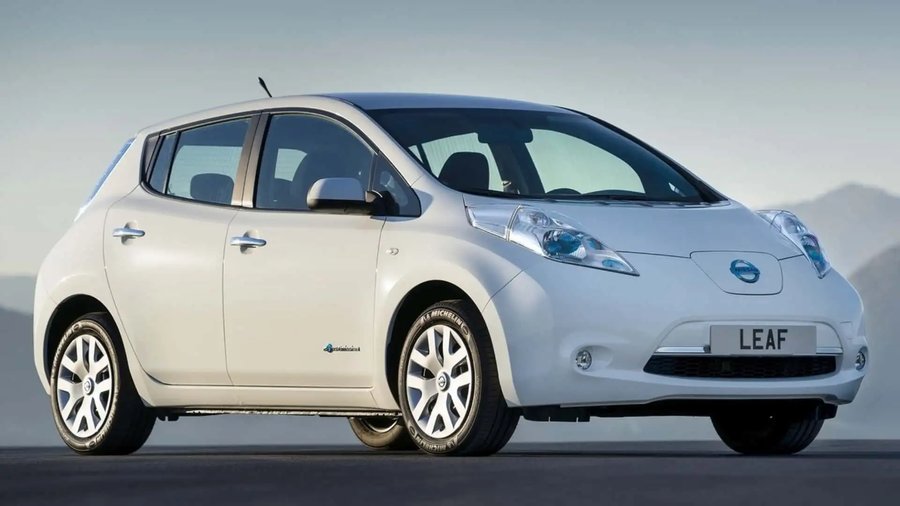Nissan Leaf Owners 'Abandoned' As They Lose Network Access. It's A Worrying Sign For Connected Cars

Internet-connected cars are great, right? They let you flip on your heater via a smartphone app so your car is nice and toasty when you get in, or activate electric vehicle charging remotely to refuel at the cheapest times of the day. It’s all fun and games until your Nissan Leaf unexpectedly loses its ability to connect to the internet through no fault of your own.
That’s precisely what’s happening to U.K.-based owners of Leafs produced until 2016, the BBC reported on Tuesday. Those early cars use an outdated 2G internet connection, which U.K. network operators are preparing to phase out.
Nissan told the outlet that the app that Leaf owners use to control their cars will cease to function on April 1, 2024, but that some of its features will still be available in vehicles’ touchscreens.
To be sure, this impacts a relatively small number of car owners. Still, it says a lot about the kinds of issues drivers may face as new cars become more packed with software and connected than ever before. The smartphone-ificiation of cars brings a lot of benefits—like over-the-air updates that keep vehicles feeling fresh. But even the most cutting-edge technology, given enough time, fades into obsolescence and risks losing support.
That has far different implications for a buyer of a $1,000 iPhone than a $50,000 SUV.
It used to be that as long as you could find the right parts and get repairs done, a vehicle could keep on trundling along, more or less. Now that software and connected features are in the mix, there’s a lot more a vehicle’s longevity depends on than its mechanical condition. It also has to do with whether a car company—or a cellular network, in some cases—is willing to stand by aging but perhaps still perfectly functional tech.
The same phenomenon that’s left those Leaf owners disgruntled has actually already happened here in the U.S. AT&T shut down the 2G cellular service Leafs relied on in 2016. Nissan offered a mix of free and paid upgrades to keep Leaf owners happy and connected.
3G cell service went extinct in the U.S. in 2022, cutting off automatic crash notification functions and some convenience features for a large number of vehicles across brands. Some companies offered upgrades to 4G service, while some cars lost connectivity permanently. If and when 4G dies out and 5G after it, the ripple effects could be much more devastating, given the auto industry’s new focus on selling software-enabled features and subscription services.
There’s also the question of the computers that today’s cars use falling behind the needs of ever-more-demanding software. We’ve all no doubt been frustrated by a few-year-old phone or laptop that can’t run its latest operating system without horrendous lag and glitches. Who says the same thing can’t happen to a computer-filled car that’s frequently receiving software updates and new capabilities?
Tesla owners have already seen what happens when new, powerful software programs exceed the limitations of a car’s hardware. They’re asked to pay up for the latest tech.
In 2021, Tesla started offering monthly subscriptions for its prototype Full Self-Driving feature, which had previously only been available for a one-time fee of several thousand dollars. But there was a catch. Subscribers whose cars weren’t equipped with Tesla’s latest Full Self-Driving computer would have to shell out $1,500 (later dropped to $1,000) for an upgraded unit. Many of those Teslas were just two years old.
Owners were understandably miffed. Tesla had proclaimed in a blog post back in 2016 that “all Tesla vehicles produced in our factory—including Model 3—will have the hardware needed for full self-driving capability.” To be sure, owners who bought Full Self-Driving outright could get the computer upgrade for free. But it’s hard to imagine Tesla offering complimentary upgrades indefinitely as it works toward its long-promised self-driving car.
Hopefully, carmakers will take measures to keep their vehicles supported even as technology advances. And hopefully, cars will gain more capabilities than they lose over their lifetimes. But then again, what’s better for business than an expensive car you feel the need to replace?
Related News


